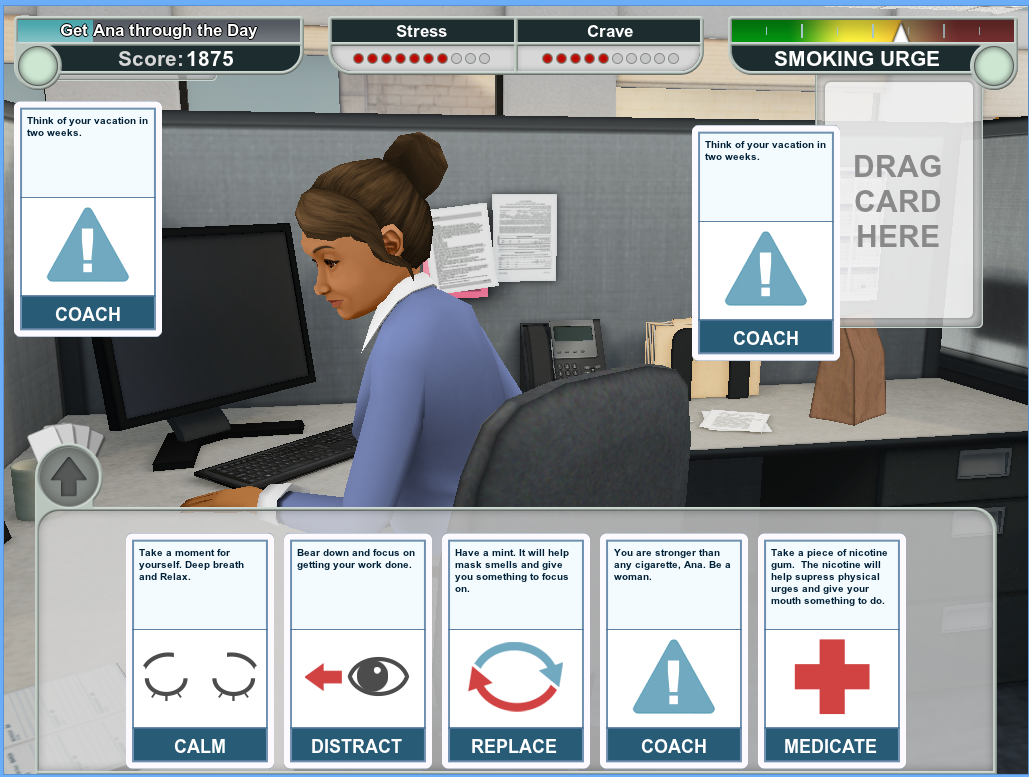Quit IT: Game-based smoking-cessation research with MSKCC
Screenshot from Quit-IT smoking cessation game intervention. Coping mechanisms are presented with “card” interface below. Goals and character “urge” status at top.
About the project
I was honored to work as a co-principal investigator with Memorial-Sloan Kettering Cancer Center and our Muzzy Lane team on a on an anti-smoking reseach/development project.
Our team developed a smoking cessation intervention based on game design principles and behavioral rehearsal therapy to help smokers identify, model, and practice coping strategies to avoid relapse to smoking.
We designed the game for hospitalized smokers - based on high relapse rates following hospital discharge. Our development process included expert focus groups, prototyping, and think aloud testing with a sample of 20 smokers with a history of cancer.
The Design
The game featured several storylines featuring characters facing a variety of realistic challenges to “staying quit”.
Effective smoking relapse prevention interventions of complex challenges and strategies such as identifying tobacco use triggers, engaging in alternative coping behaviors, seeking social support from family and friends about tobacco use, modifying one’s internal dialogue, and dealing with inevitable slips to prevent relapse.
Our design aimed to create engaging scenarios where patients encounter situations that provoke smoking urges, and can practice coping strategies.
The Study
Forty-two English-speaking cancer patients scheduled for surgical treatment were randomized to either Standard Care or the experimental QuitIT study arm. Gameplay parameters were captured in-game, and feedback on the experience was assessed at 1-month follow up.
Satisfaction with gameplay was largely positive, with most respondents enjoying use, relating to the characters, and endorsing that gameplay helped them cope with actual smoking urges.
We also learned that the peri-hospitalization period is not an ideal time to deliver a smoking-cessation app intervention: Many patients were naturally preoccupied with the demands of their hospitalization and illness concerns. While it was outside of this study, it would be interesting to test an app like this with other smoker groups.
The project team:
Memorial Sloan Kettering Cancer Center:
Dr. Jamie Ostroff, PhD, Co principal investigator
Dr. Paul Krebs, PhD, PhD;
Dr. Jack Burkhalter, PhD.
Muzzy Lane team:
Bert Snow: Creative Director, Co principal investigator.
Jeff Fiske: Game Designer and Producer
David Martz: Executive Producer
Ralph Gerth: Art Director
Artists: Hannah Lawler, Greg Murphy,
Key Programmers: Frank Williams, Dustin Byrne
UI programmer: Mike Andryauskis


